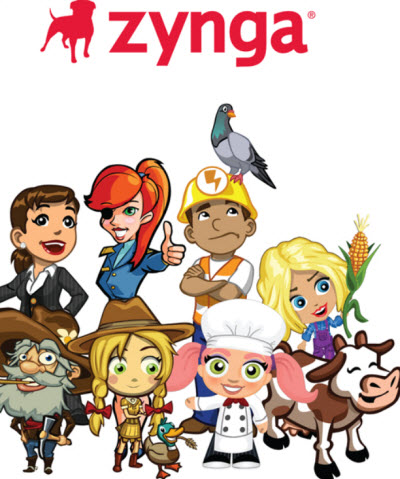
The subject is open to debate and players such as Facebook and Zynga will no doubt dispute this. But IHS Screen Digest has put together an argument that will likely get a lot of attention, as games such as those made by Zynga have driven the growth of the social network.
[aditude-amp id="flyingcarpet" targeting='{"env":"staging","page_type":"article","post_id":394933,"post_type":"story","post_chan":"none","tags":null,"ai":false,"category":"none","all_categories":"business,games,","session":"D"}']Facebook’s gaming boom has come to an end, according to a report from IHS Screen Digest Media Research.
The subject is open to debate. Facebook will no doubt dispute this claim, as will Zynga, whose success as a gaming company has been dependent on Facebook — and has helped drive the growth of the social network. But IHS Screen Digest has put together an argument that will likely get a lot of attention.
IHS Screen Digest says that the total number of users is stagnating, barriers to entry are rising, competition is increasing, and companies are intensifying their fight for consumer mindshare against other social network activities.
While the number of Facebook gamers grew dramatically in 2009 and 2010, the number grew little in 2011. In 2010, about 50 percent of Facebook’s users were gamers, but that percentage fell to just 25 percent in 2011. The assessment is a contrast to one offered by analyst Michael Pachter of Wedbush Securities, who argued yesterday that social games are not a bubble.
Monthly active users for Facebook game giant Zynga fell in the fourth quarter to 225 million, from 266 million at the end of the third quarter. (Zynga’s own numbers show a rise, from 230 million in Q3 to 240 million in Q4; IHS says it counts users in a different way).
“Facebook rocketed to prominence as a gaming platform in 2009 and 2010,” said Steve Bailey, senior analyst for games at IHS. “However, with equal speed, the market then settled into a state of maturity in 2011, with conditions becoming markedly more challenging for game operators. While Facebook remains a worthwhile opportunity for companies able to meet these challenges, the tone of the market in 2012 will be somewhat muted compared to the optimistic outlook of the past few years.”
Facebook and Zynga have not yet offered a comment.
IHS Screen Digest says that 2012 will be tough because the cost of acquiring new users is a lot higher. Viral channels for finding new users through word-of-mouth aren’t as abundant on Facebook, because the company had to crack down on game message spam that was annoying non-gamers. That has forced game companies to do more direct advertising or engage in cross-promotion networks, which is driving up their expenses.
Game companies are dealing with their increased costs by improving retention of current players and making more money from them. But development costs are also rising as users expect higher production values in the newest games.
Another problem for game companies is the intense competition. Game companies are launching more titles that require greater player commitment or skill, in return for a deeper sense of engagement. So while the overall quality of games is rising, gamers will likely play fewer games as they pour more energy into their favorite titles.
Facebook game companies must also deal with the fact that they must jostle with non-game applications vying for the attention of Facebook users. Kabam, a hardcore game company that found traction on Facebook with social games, has expanded into other platforms as it tries to find hardcore gamers wherever they are. Kabam discovered that finding those players on Facebook was an expensive and inefficient process.
Finally, the introduction of Facebook Credits as a required payment platform has put pressure on revenues for game companies. Facebook takes 30 percent of every transaction involving the sale of virtual goods in games. By contrast, Google+ charges only 5 percent transaction fees.
The conclusion is that the honeymoon for games is over on Facebook, IHS Screen Digest says. Smartphones and tablets are a viable alternative game platform. Game companies can also consider expanding into Asia, but that market is already crowded with entrenched competitors such as Nexon.
“While opportunity is certainly available in smartphones and in Asia, social networking game providers will not be able to recreate the intoxicating ski-ramp growth they enjoyed during Facebook gaming’s heyday,” the report says. “Undoubtedly, Facebook will remain a powerful player within the gaming landscape, but it’s now part of an emerging multichannel, cross-platform approach to connected gaming.”
As an aside, the cost of user acquisition is a big issue in mobile as well. We’ll be discussing it at our upcoming VentureBeat Mobile Summit.
VentureBeat's mission is to be a digital town square for technical decision-makers to gain knowledge about transformative enterprise technology and transact. Learn More
